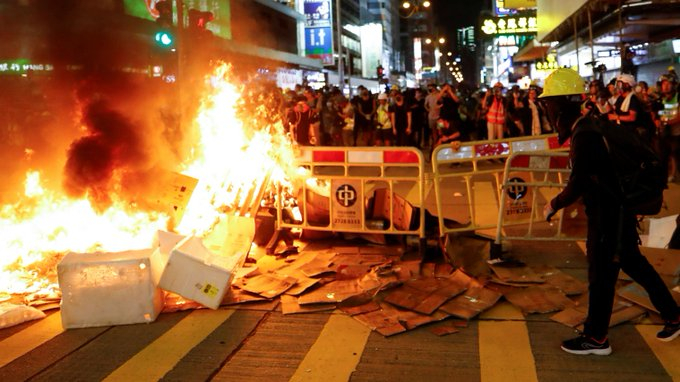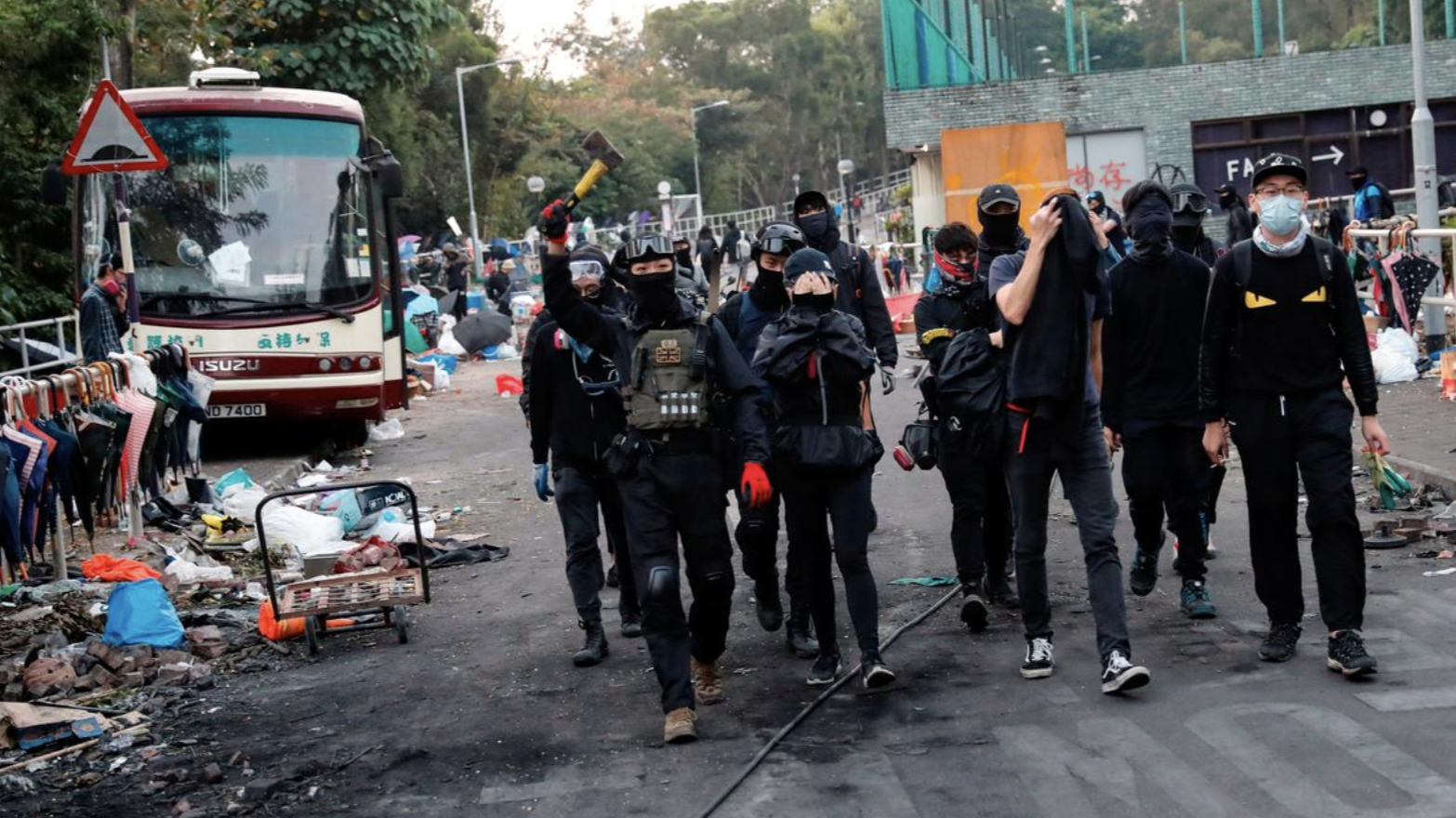
Editor's note: Zhao Yuanzhen is an opinion editor with CGTN Digital. The article reflects the author's opinions, and not necessarily the views of CGTN.
Does the call for democracy require deaths and injuries of the innocent? That should be the question for Hong Kong protesters to ponder upon after two recent tragedies.
A 70-year-old cleaner in Hong Kong was confirmed dead after he was hit by a brick while clearing the barricades. Hong Kong police have classified this tragedy as murder. This was the second death only a week after a student protester fell from a car park.
Escalation of the current protests in Hong Kong has caused many injuries to the point where people have gotten used to such violence. But the death of an innocent cleaner should at least make those who have vowed to fight for democracy rethink their actions: Is the political "freedom" they want doomed to be achieved through blood and death?
The idea that anyone who does not take their side will have their life threatened is chilling to say the least. If one looks up "terrorism" in the dictionary, one might quickly find that as more rioters target ordinary citizens and threaten their lives and safety, they are on the verge of becoming terrorists.
Injuries and deaths will always trigger a new round of violence as hatred and exaggerated or even false information are being distributed on social media. After the student fell from the car park, there were quick rumors online claiming that it was the police who pushed the student and even deliberately obstructed the rescuing process. The Hong Kong police had to hold an emergency press conference to refute those rumors.
But facts never travel faster than rumors. Even though the reason why the student fell is still unclear, the protesters have seized the death as an excuse to justify violence. On November 11, a man was splashed with flammable liquid and set on fire during an argument with a group of protesters. The next day saw The Chinese University of Hong Kong become the battlefield where some rioters hid from the police.

Rioters engaging in a standoff with the police at the Chinese University of Hong Kong, Hong Kong, China, on November 14, 2019. /Photo via Reuters
Rioters engaging in a standoff with the police at the Chinese University of Hong Kong, Hong Kong, China, on November 14, 2019. /Photo via Reuters
This is turning to be a vicious circle. Information about the protests being distributed on social media has been fractured and one-sided, some of them are even blatant lies. There is almost no cost in redistributing eye-catching photos of injuries on social media, and they always work among protesters because as they see it, it is them, not Hong Kong residents who are the victims.
They see themselves as freedom fighters who are fighting under the noble cause of "democracy." The police force has become the weapon of the establishments that is aimed at crushing their ideals, even though their job is to keep the city safe. They blame the police for excessive use of violence, but do not stop for a minute to think about the legitimacy of their destruction. For them, the police are abusing their power, while they are only resisting the oppression by using more violence.
The protesters' victim mentality is further polarizing the city, once hailed as the bridge between China and the West, where two streams of culture have been fused fascinatingly. The footage of police shooting a man trying to grab the gun only reinforces the image of police brutality as they refuse to understand the context of such action.
Western media's irresponsible reports on the current events have been fueling the escalation. For example, in a report by Guardian on the police shooting, they cut out the key moment when the man tried to seize the gun. According to the police officer, it was the thought that the weapon could be used to threaten civilians that prompted him to make the decision.
Sadly, at this point, Hong Kong police's explanation and statements have fallen on deaf ears. There seems to be a sound-proof wall between protesters and the Hong Kong authorities, where on each side they have tried to amplify their voices. The distrust has only worsened with rumors and irresponsible media reports.
Until there's a collective force inside Hong Kong to oppose the violent actions, it seems that current turbulence will last for as long it can continue.
(If you want to contribute and have specific expertise, please contact us at opinions@cgtn.com)